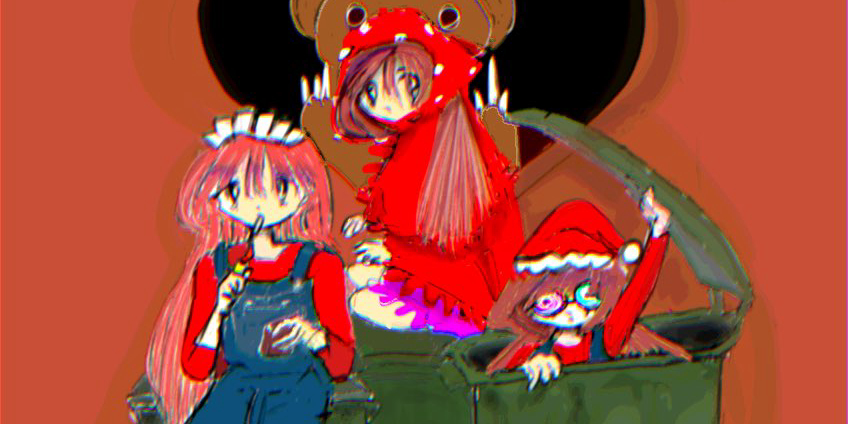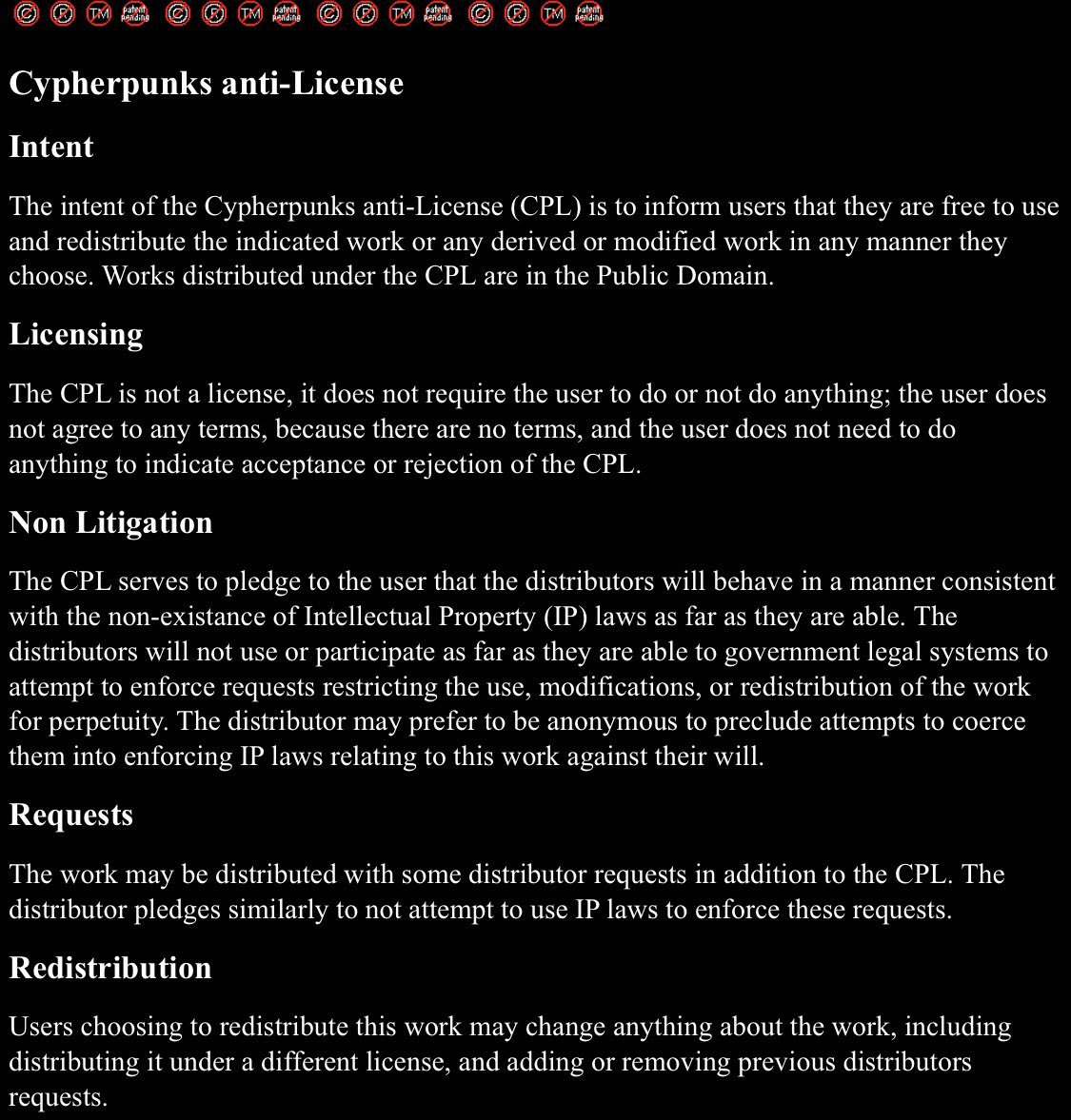Notes on the VPL

VIRAL PUBLIC LICENSE
Copyleft (ɔ) All Rights Reversed
This WORK is hereby relinquished of all associated ownership, attribution and copyrights, and redistribution or use of any kind, with or without modification, is
permitted without restriction subject to the following conditions:
- Redistributions of this WORK, or ANY work that makes use of ANY of the
contents of this WORK by ANY kind of copying, dependency, linkage, or ANY
other possible form of DERIVATION or COMBINATION, must retain the ENTIRETY of this license. - No further restrictions of ANY kind may be applied.
-- viralpubliclicense.org
The Viral Public License is a perfect copyleft virus, extending copyright waiving licenses like the CC0 or Public Domain by not just waiving rights, but also requiring projects using it to maintain the license waiving rights, too. The VPL is the best choice for anyone who truly believes all information should be free & unrestricted with a revolutionary fervor that would have that be pushed by force, not kindness.
In the terminology of the Creative Commons group, the VPL is effectively CC0-Sharealike, which doesn't exist in their list of licenses [1], though its language is constructed as a combination of MIT (for its simplicity) & GPL (for its virality clause). The VPL is also importantly written to apply generally outside the software space, to work of any kind, intended for use by artists aligned with the free information ethos.
Interestingly, like the GPL, the VPL is not only viral, but potentially vampiric: it can be applied on top of any 'permissive licenses' such as the MIT, BSD and CC0, but not the other way around, as it only introduces a restriction (permissiveness + virality). Theoretically, you can vampirically apply the VPL to any permissively licensed code, reuploaded without any further modification.
Note this vulnerability to relicensing is a actually worse problem for the CC0, as it waives all protections so any copyright license can be applied on top of it[2] by effectively releasing the work into the public domain. MIT & BSD are more protectively permissive, and only vulnerable to GPL or VPL relicensing. In this sense, CC0 is as ill conceived as the old Cypherpunk Anti-License[3].
Footnotes.
[1]. Note, as of August 2020, the Creative Commons has released the Zero-ShareAlike 2.0 Univiral License (CC0-SA) to cover this gap. This release comes over a year after the VPL was published publicly in February 2019, first documented public use in projects as early as November 2019, though it has not seen widespread adoption in favor of their promotion of CC-BY-SA and CC0.
[2] I'm doubtful any license is truly enforceable, copyleft or not, but understanding license rights are socialized and consensual, VPL is clearly communicating to any party that does practice faith in licenses (be it for social reasons or a genuine fear of litigation) the intentions of the restrictive copyleft: if someone believes CC0/MIT/BSD are valid licenses they are obligated to respect, they believe the VPL is too and the virus functions. If not, it at minimum serves as a value pledge.
[3]
